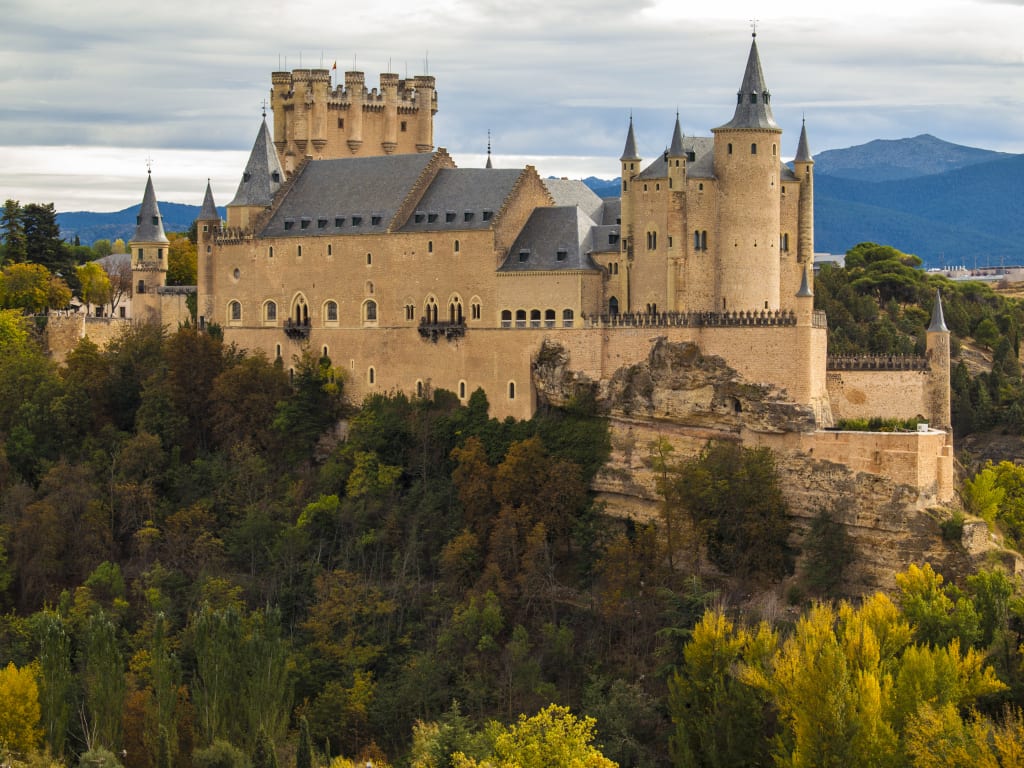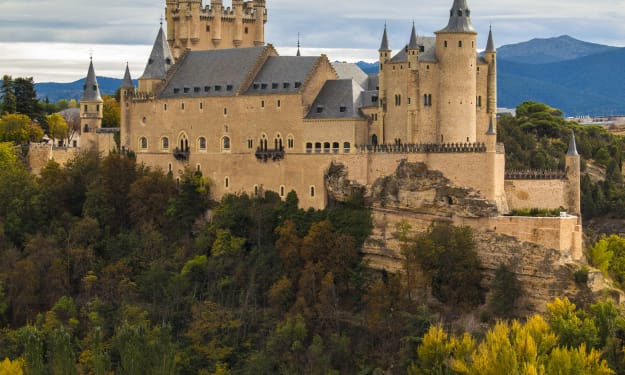An Uncrowned King Chapter 6 Part 5
A Royal Progress

“That is all our work since the revolution,” said M. Drakovics, pointing to this rampart with pride. “Under the Franzas, the money voted for fortifications was all spent on excavating and arming useless batteries along the river-front, which no foe would think of attacking, while the town was left defenceless.”
“I don’t think you are giving King Peter the credit he deserves,” said Cyril. “If his batteries on the river-face are well placed, he ought to be able to command the whole channel, and his position would be most important in view of a European war. Matters would be very much in his hands, for unless he chose, the Pannonian gunboats could not get out to sea, nor could the Scythian war-ships get up the river. The great danger would be that he might find himself taken in the rear. I suppose he meant to see to that when he had finished his batteries.”
“Our views were not so exalted, milord,” said M. Drakovics. “Safety was our great consideration, and when we were free our first thought was to erect a wall, which, if it could not stand against modern artillery, would at any rate serve to resist any insurrectionary force.”
“And to whom is the defence of the wall intrusted?” asked Caerleon. “To the Sacred Band?”
“No, indeed,” answered the Premier. “Their barracks are two miles away from the city, on that farther hill. The people were afraid that if their king had a regiment at his command in Bellaviste, he might use it to overthrow the constitution. The city is garrisoned by the city guard, which is entirely composed of young men belonging to Bellaviste families. One company of this forms the palace guard, with a very elaborate uniform and special rights. It was the favourite corps of King Peter Franza, and we scarcely expected that its members would be willing to fall in with the new state of things, particularly when we were forced to deprive them of some of their privileges. But the officers are all staunch—we took care of that.”
“Did your care extend to giving the palace guard as many occasions of discontent as possible?” asked Cyril. “You owed the success of your revolution to the co-operation of the army, and the army must be very dense if it has not learnt the lesson. What you will have to guard against in the future is a military revolt, and it sounds to the uninitiated as though you were carefully working one up.”
“We were obliged to deprive the guard as far as possible of its power of mischief, milord. In its former state it was a standing menace, but under its present officers it is excellently affected to the Government.”
At the gate of the city the Sacred Band handed over its escort duties to the guard, which was paraded for the King’s inspection, after which all the troops fell in for the march through the streets. The houses were gaily decorated, and the windows and roofs crowded with people, who welcomed Caerleon with shouts of joy. It was still early in the day, and M. Drakovics had arranged a programme of events. Orders had been sent forward to prepare for the coronation; but it was found impossible to complete the arrangements before the morrow, and all that could be done on this occasion was to visit the hall of the Assembly, in order to receive the loyal addresses of the Legislative body, and their oath of allegiance. Then followed the reception of addresses from the municipality of Bellaviste, and as many other local authorities as had been able to get them ready in time; after which came lunch at the Hôtel de Ville, and a state progress through the town. Further receptions followed this, and the events of the day concluded with a parade of the palace guard in the courtyard of the palace. It needed all M. Drakovics’s powers of persuasion to induce his sovereign to conduct a third inspection after his round of duties; but he represented so forcibly the disappointment which would be felt in the city if any slight were offered to the guard, that Caerleon yielded. They were a fine body of men, wearing a very handsome, if somewhat foppish, uniform, and their officers were seasoned old soldiers, whose aspect presented a curious contrast to that of the rank and file. One more speech, translated by M. Drakovics, was necessary here, and this duty performed, Caerleon entered his palace with a sigh of relief. Owing to the delay in the coronation arrangements, which included a state banquet, no special function had been fixed for that evening, except that the town was to be illuminated later on; and although M. Drakovics would have liked to linger at the palace and talk international politics, Caerleon’s disinclination for further conversation on the subject was so extremely pronounced that he found it impossible to remain, and the brothers were left alone together.





Comments
There are no comments for this story
Be the first to respond and start the conversation.